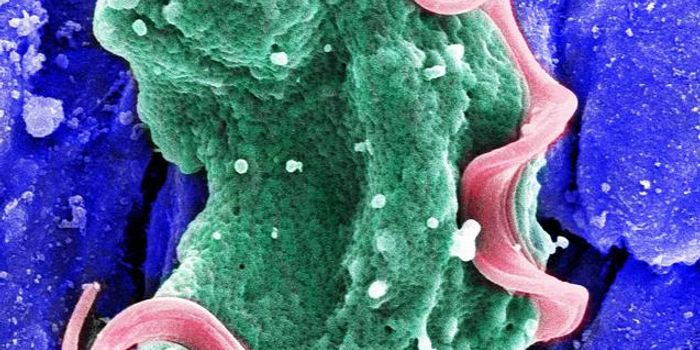A More Effective Vaccine for Shingles
Shingles, also known as herpes zoster, is a painful skin rash that is related to chickenpox. Once a person has had chickenpox, the remnants of that virus never leave the body.
Later in life, if there is a problem in the immune system the virus can reactivate in the nerve cells of the body. Those who had chickenpox before the age of 18 months have an increased risk of getting shingles.
The rash consists of blisters that ooze and then crust over. If a person comes into contact with a shingles rash, they could come down with chickenpox if they haven't been vaccinated or don't have immunities from a previous infection. Shingles infections are extremely painful, and while the rash usually disappears in a few weeks, some patients will develop post-herpetic neuralgia where the brain is still receiving signals from the affected area.
A new vaccine for shingles was approved by the FDA last fall and should be available soon. Shingrix is thought to be greater than 90% effective at preventing shingles infections. Shingrix was studied in clinical trials and found to be effective for 97% of people aged 50-59. Even in the oldest age group, patients over 70 years old, efficacy was roughly 85%.
Dr. Gregory Poland, director of Mayo Clinic's Vaccine Research Group, explained, "In excess of 30 percent of all of us are going to develop shingles sometime in our life. In studies so far, it's as good as any vaccine that we've ever seen and I think will protect people at extremely high rates in preventing shingles."
The vaccine is given in two doses. Dr. Poland stated that anyone over the age of 50 should get the new vaccine. Even if they've had shingles or the older vaccine, it's still worth getting the shots. Symptoms of shingles include pain, burning, numbness or tingling, especially in the torso. The rash begins a few days after symptoms start and many times patients don't realize it's shingles until the sores appear. The skin around the rash is extremely sensitive to touch. Even lightweight clothing or bed sheets can cause excruciating pain when coming in contact with the affected area. There can also be flu-like symptoms including a headache, low-grade fever, and fatigue.
While shingles is no picnic for patients, it's also a risk for those around them. Pregnant women should not be around anyone who has an active case of shingles, nor should newborns or anyone who is unvaccinated or immunocompromised. Transplant recipients have a higher chance of contracting shingles as do people with certain cancers or HIV/AIDS. Shingles should be considered contagious until the sores have scabbed over after oozing.
The video below features Dr. Pollard and additional information on the vaccine.
Sources: Mayo Clinic, Immunization Action Coalition, Statnews









